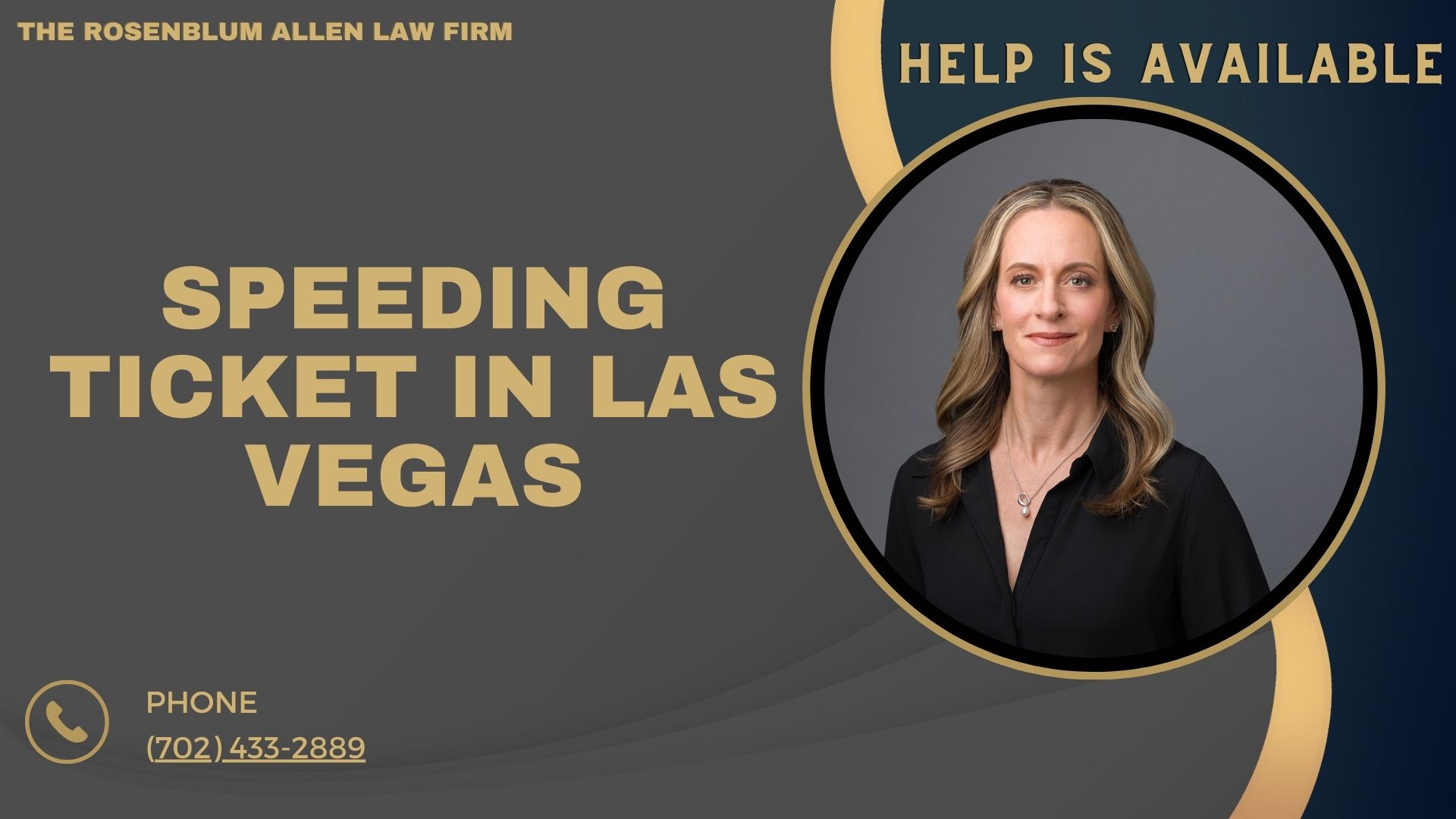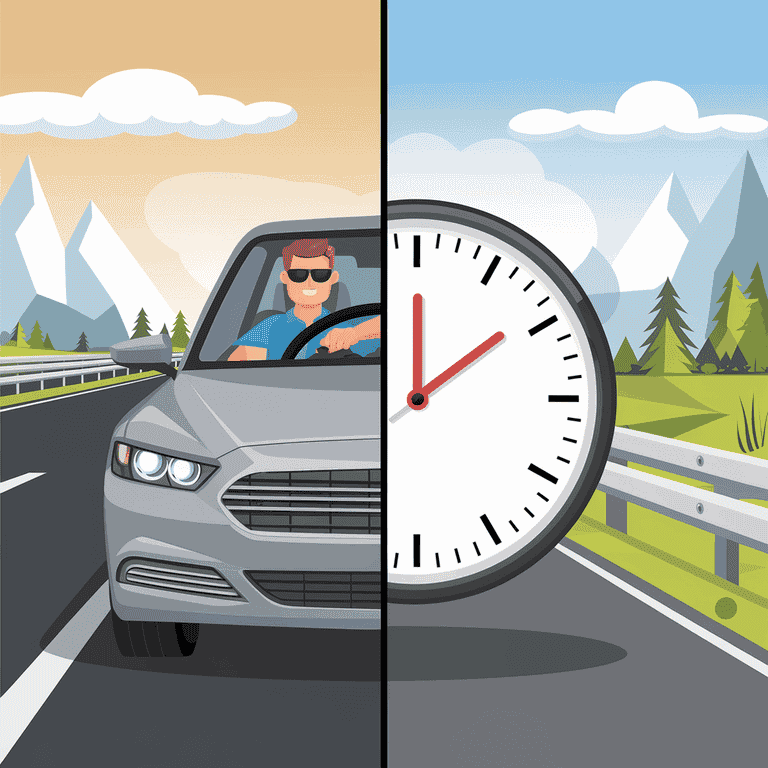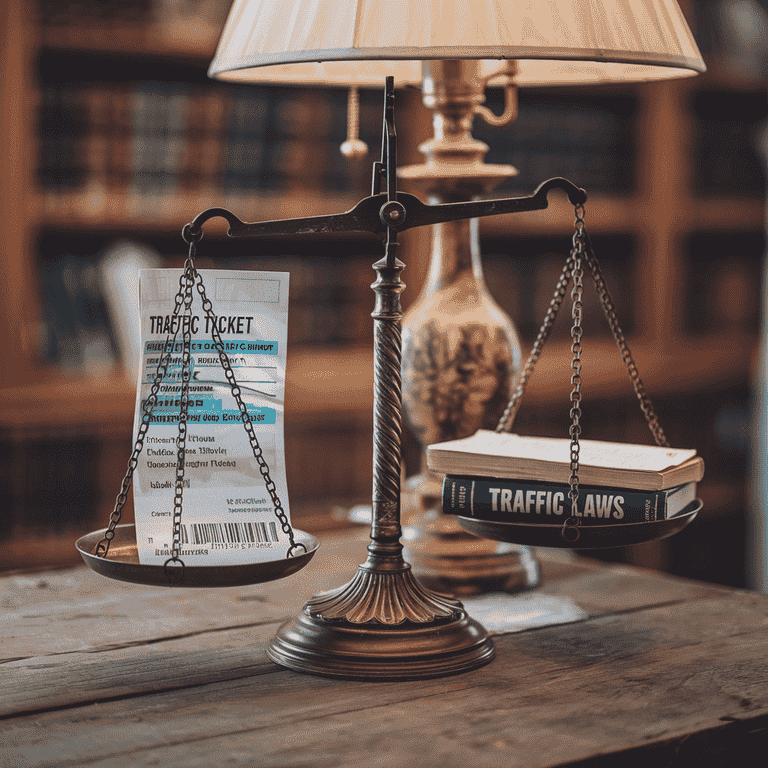Let’s face it: nobody likes seeing those flashing lights in their rearview mirror. Your heart sinks as you realize you’ve been caught speeding. But what exactly is a speeding ticket, and why do they matter? Let’s dive in and demystify this common traffic violation.

 What is a Speeding Ticket?
What is a Speeding Ticket?
Definition and Legal Basis
A speeding ticket is more than just a piece of paper. It’s a legal document issued by law enforcement when you’re caught driving faster than the posted speed limit. Think of it as the road’s way of saying, “Whoa there, Speed Racer!”
Speeding tickets are based on traffic laws varying by state and local jurisdiction. These laws are designed to keep our roads safe and reduce accidents. After all, speed kills – and that’s not just a catchy slogan.
Types of Speeding Violations
Not all speeding tickets are created equal. Here are the main types you might encounter:
- Absolute Speed Limit Violation: You’re going faster than the posted limit. It’s as simple as that.
- Presumed Speed Limit Violation: You’re driving faster than what’s considered safe for current conditions, even if you’re within the posted limit.
- Fundamental Speed Law Violation: You’re driving at an unsafe speed, given the current conditions, regardless of the posted limit.
Common Causes of Speeding Tickets
Inattentive Driving
We’ve all been there. You’re cruising along, lost in thought or belting out your favorite song, and suddenly, you realize you’re going way too fast. Oops! Inattentive driving is a significant cause of speeding tickets. It’s easy to let your speed creep up when you’re not paying attention.
Rushing to a Destination
Are you running late for work or trying to make it to your kid’s recital on time? The temptation to speed can be strong when we’re in a hurry. But remember, it’s better to arrive late than not at all.

Increased Insurance Premiums
Do you think the pain stops at the fine? Think again. Your insurance company might decide to join the party. A speeding ticket can bump your premiums by 20-30% for the next three years. Ouch!
Legal Ramifications
Speeding tickets can have serious legal consequences beyond the hit to your wallet.
Points on Driving Record
Most states use a point system. Each violation adds points to your driving record. Too many points, and you could be looking at…
Potential License Suspension
That’s right, rack up enough points, and you might find yourself taking the bus. The number of points that lead to suspension varies by state, but it’s usually between 8 and 12 within a year or two.
Impact on Employment
Your lead foot could even affect your job prospects.
Jobs Requiring Clean Driving Records
Some careers take a dim view of speeding tickets:
- Commercial drivers
- Delivery personnel
- Sales representatives who drive company cars
- Emergency responders
A spotty driving record could cost you that dream job or even your current position if driving is vital to your work.
How to Handle a Speeding Ticket
Okay, so you’ve got a ticket. Don’t panic! You’ve got options.
Paying the Fine
This is the most straightforward route. Just pay up and move on. But remember, this usually means admitting guilt and accepting those points on your record.
Contesting the Ticket
Are you feeling feisty? You can fight that ticket!
Gathering Evidence
Before you go to court, do your homework:
- Take photos of the area where you were ticketed
- Check if the speed limit signs are visible
- Review your speedometer’s accuracy
Presenting Your Case in Court
Dress nicely, be polite, and present your evidence calmly. Sometimes, just showing up can work in your favor – the officer who ticketed you might not appear, which could get your case dismissed.
Traffic School Options
Many jurisdictions offer traffic school to keep the ticket off your record. It’s boring, sure, but it beats points on your license and higher insurance rates.
Remember, every situation is unique. Consider your options carefully and choose the path that works best for you. And next time, watch that speedometer!

Preventing Future Speeding Tickets
Let’s face it—nobody wants to be a repeat offender. Here are some tried-and-true methods for keeping those pesky tickets at bay.
Using Cruise Control
Your car’s cruise control is for more than just long road trips. It’s your secret weapon against accidental speeding. Set it and forget it, but don’t forget; stay alert and ready to take control when needed.
Being Aware of Speed Limits
It sounds obvious, but how often do we really pay attention to those signs? Here’s a quick refresher:
- Residential areas: Usually 25-35 mph
- City streets: Typically 35-45 mph
- Highways: Often 55-70 mph
- School zones: Slow down! Usually 15-25 mph
Pro tip: If you need more clarification, err on caution. It’s better to be a little slow than a lot ticketed!
Allowing Extra Travel Time
Rushing is the enemy of safe driving. Give yourself a buffer:
- For short trips, Add 5-10 minutes
- For longer journeys: Add 15-30 minutes
Think of investing in your peace of mind (and your wallet).
Technology and Speeding Tickets
Welcome to the 21st century, where even speeding has gone high-tech!
Speed Cameras and Red Light Cameras
These silent sentinels are popping up everywhere. They’re like the paparazzi of the road – always watching, always ready to catch you in the act.
How they work:
- A camera detects a speeding vehicle
- It snaps a photo of your license plate
- You get a lovely surprise in the mail (spoiler: it’s a ticket)
Remember, smile! You’re on camera.
Radar Detectors: Legality and Effectiveness
Ah, the radar detector. The speeder’s best friend… or is it?
Legality:
- Legal in most U.S. states for private vehicles
- Illegal in Virginia and Washington D.C.
- Illegal in all commercial vehicles nationwide
Effectiveness? Well, it’s a mixed bag:
- Can detect traditional radar guns
- Often fooled by newer laser speed detection
- Useless against speed cameras
Bottom line: They might help but are not a get-out-of-ticket-free card.

Speeding Ticket Myths and Facts
Time to separate the wheat from the chaff, the truth from the tall tales!
Common Misconceptions
Let’s bust some myths:
- “If the officer made a mistake on the ticket, it’ll be dismissed.”
- Reality: Minor errors rarely affect the ticket’s validity.
- “I can’t get a ticket if I only go with the traffic flow.”
- Reality: You absolutely can. The speed limit applies to everyone.
- “Radar detectors are foolproof.”
- Reality: As we’ve seen, they’re far from it.
- “If I don’t sign the ticket, it doesn’t count.”
- Reality: Signing acknowledges receipt, not guilt. Refusing can lead to arrest.
Statistical Realities
Now for some cold, hard facts:
- Speeding is a factor in about 26% of all traffic fatalities (NHTSA)
- The average speeding ticket costs $150, but the actual cost (including insurance hikes) is closer to $900 over three years
- Men get more speeding tickets than women (sorry, guys!)
- The most common time to get a speeding ticket? Between 1 pm and 5 pm on a Saturday
Remember, knowledge is power. Use these facts to stay safe, legal, and ticket-free on the roads!

Breaking It All Down For You
Remember, the rules of the road are there for a reason – to keep everyone safe. Sure, we all like to get where we’re going quickly, but is it worth risking your safety, your wallet, or your driving record? Next time you’re tempted to put the pedal to the metal, think back to this guide. Your future self (and your bank account) will thank you for easing off the gas a little. Drive safe out there, folks. The life you save might just be your own!

Frequently Asked Questions
If I take a defensive driving course, can I get a speeding ticket dismissed?
In many jurisdictions, completing a defensive driving course can help reduce the impact of a speeding ticket. Some courts may dismiss the ticket entirely, while others might reduce the fine or prevent points from being added to your license. Check with your local court or DMV to see if this option is available.
Is it true that out-of-state speeding tickets don’t affect my driving record?
This is a common misconception. Most states participate in the Driver’s License Compact, which means they share information about traffic violations. An out-of-state ticket can indeed affect your driving record and insurance rates. It’s best to address any ticket, regardless of where it was issued.
Can I get a speeding ticket while using cruise control?
Yes, you can. Cruise control helps maintain a constant speed, but it doesn’t guarantee that speed is legal. Always be aware of changing speed limits and adjust your cruise control accordingly. Remember, you’re responsible for your vehicle’s speed at all times.
Who is responsible for the ticket if I’m caught speeding in a rental car?
As the driver, you are responsible for traffic violations, including speeding tickets, even in a rental car. The rental company may receive the ticket initially, but they will typically charge the fine to your credit card and provide your information to the authorities.
Does a speeding ticket affect my car insurance rates even if I pay it immediately?
Unfortunately, paying a ticket promptly doesn’t prevent it from affecting your insurance rates. Most insurance companies periodically check driving records and may increase premiums based on violations, regardless of how quickly they were paid. However, maintaining a clean record afterward can help mitigate long-term effects.
Can I get a speeding ticket if I drive slower than the traffic flow?
Yes, you can. While it’s generally safer to drive with the flow of traffic, you’re still required to obey posted speed limits. If traffic flow exceeds the speed limit, you could be ticketed for speeding even if you’re going slower than surrounding vehicles.
Is there a grace period or tolerance for speeding before an officer will issue a ticket?
While some officers may give a small allowance, there’s no official grace period or tolerance for speeding. Technically, driving even 1 mph over the limit is speeding. The decision to issue a ticket is at the officer’s discretion, but it’s safest to always adhere to posted speed limits.
Can I contest a speeding ticket if I wasn’t the one driving my car?
If someone else was driving your car when it was ticketed for speeding, you may be able to contest the ticket. However, you’ll likely need to provide evidence or testimony identifying who was driving. Some jurisdictions may require you to appear in court to make this claim.

Glossary
Absolute Speed Limit: The maximum legal speed posted on a road sign that cannot be exceeded under any circumstances.
Basic Speed Law: A traffic rule requiring drivers to operate their vehicles at a speed that is reasonable and prudent given current conditions, regardless of the posted speed limit.
Citation: Another term for a ticket issued by law enforcement for a traffic violation.
Contested Hearing: A court proceeding where a driver challenges a speeding ticket before a judge.
Driver’s License Compact: An agreement between most U.S. states to share information about traffic violations and license suspensions of non-residents.
Demerit Points: Penalty points added to a driver’s record for traffic violations can lead to license suspension if too many accumulate.
Defensive Driving Course: A class that teaches safe driving techniques, often offered to reduce the impact of a traffic violation.
Doppler Radar: A type of speed detection technology used by law enforcement that measures the change in frequency of reflected radio waves to determine a vehicle’s speed.
Excessive Speeding: Driving significantly above the posted limit often results in more severe penalties.
Laser Speed Gun: A device police use to measure vehicle speed using laser technology, known for its accuracy and quick readings.
Moving Violation: A traffic offense that occurs when a vehicle is in motion, such as speeding, typically resulting in points on a driver’s record.
Presumed Speed Limit: A law that presumes a driver’s speed is reasonable and prudent if it’s within the posted limit, but allows for tickets if conditions warrant a lower momentum.
Radar Detector: A device drivers use to detect if law enforcement radar guns monitor their speed.
Red Light Camera: An automated traffic enforcement device that captures images of vehicles running red lights at intersections.
Speed Camera: An automated system that detects and photographs vehicles exceeding the speed limit, resulting in a ticket being mailed to the registered owner.
Traffic School: An educational program that drivers can attend to improve their driving skills and potentially reduce the impact of a traffic violation on their record.
Zero Tolerance: A policy that strictly enforces speed limits without allowing for any leeway or officer discretion.

Additional Resources for You
Our lead attorney, Molly Rosenblum, Esq, has developed a range of useful resources for your legal needs:
- Nevada Traffic Tickets: Understand the ins and outs of traffic violations in Nevada.
- Warrant Defense Attorneys: Learn how our team can help you in dealing with warrants.
- Do You Need to Hire a Lawyer for Misdemeanor Charges?: Get the lowdown on when it’s necessary to hire legal counsel for misdemeanor charges.
- The Nevada Arraignment – Frequently Asked Questions: Your most pressing questions about Nevada arraignments answered.
- The Definitive Guide to Sealing Criminal Records in Nevada: A comprehensive guide on the process of sealing criminal records in Nevada.
- Sex Crime Defense Attorneys: Learn how our dedicated team of attorneys can assist in sex crime cases.
- Nevada Shoplifting Laws: A clear explanation of shoplifting laws in Nevada.
- Gang Crimes Lawyer: Find out how we can help if you’re facing gang-related charges.
- Murder vs Homicide: Understand the key differences between these two serious charges.
- Extortion: Discover how our firm can assist in cases of alleged extortion.
- First Time DUI: A guide for individuals facing their first DUI charge.
- Second Time DUI: Information for those dealing with a second DUI offense.
- Third Time DUI: Get advice if you’re facing a third DUI charge.

Offsite Resources for You
National Highway Traffic Safety Administration (NHTSA): For traffic safety information and statistics. https://www.nhtsa.gov/
American Automobile Association (AAA): Offers defensive driving courses and traffic safety resources. https://www.aaa.com/
National Motorists Association: Provides resources on fighting traffic tickets and advocating for drivers’ rights. https://www.motorists.org/
Governors Highway Safety Association: Offers state-specific traffic laws and safety programs. https://www.ghsa.org/
Insurance Institute for Highway Safety (IIHS): Provides research and information on vehicle safety. https://www.iihs.org/
FindLaw: Offers legal information on traffic laws and tickets. https://www.findlaw.com/
DMV.org: Provides information on driving laws, license requirements, and traffic tickets for all 50 states. https://www.dmv.org/

A Special Message from Our Lead Attorney

Dear Reader,
Thank you for taking the time to read these resources. I, Molly Rosenblum, and the rest of our dedicated team understand how important it is for you to have accurate information during these challenging times.
We are here to provide you with more than just online resources; we offer real-world assistance and legal representation tailored to your unique situation.We are ready to get the ball rolling and work diligently on your behalf. Please do not hesitate to call us at (702) 433-2889. We look forward to hearing from you and discussing how we can best serve your legal needs.
Warm Regards,
Molly Rosenblum, Esq.



